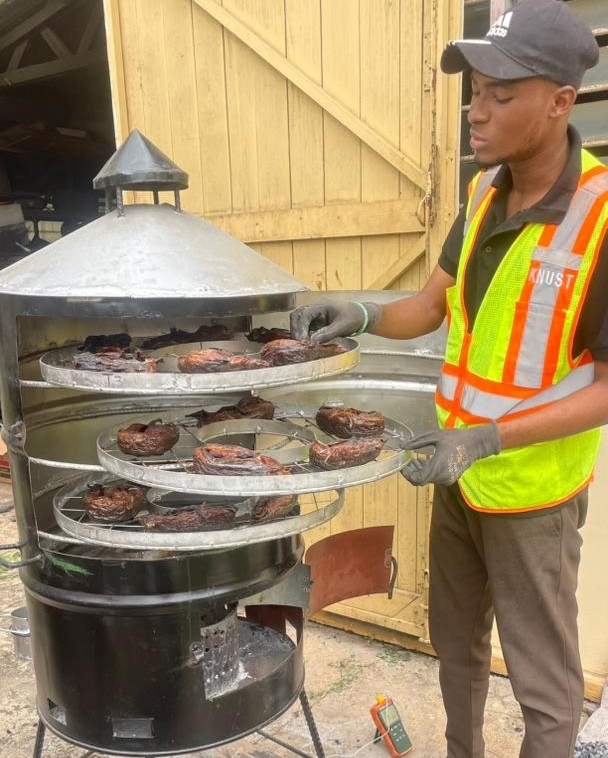Fish smoking is the most widely used method of fish processing in Ghana; however, the health risks associated with the practice are alarming.
According to a study published in the Journal of Agriculture and Food Security, most traditional smoked fish processors in Ghana work in unsanitary environments with little quality control.
This exposes both consumers and processors to serious health risks, including respiratory diseases, eye complications, and even cancer-related illnesses.

To help address these challenges, Emmanuel Ayimolga, a final-year student at the Department of Agricultural and Biosystems Engineering, has developed an improved stove for smoking fish.
The stove, constructed from a repurposed oil drum, is equipped with a drip tray and an oil collection that prevents oil from dripping directly onto the fire.
This innovation reduces flare-ups, minimizes smoke emissions, and cuts down fuel consumption.
“Looking at the challenges of local ovens such as the Chorkor oven and others, there was a need for us to develop a safe and efficient stove that would allow us to smoke fish within a shorter drying time while ensuring better quality.
After carefully considering everything, I came up with some design concepts. Based on readily available materials, ease of construction, and cost, I decided to use a repurposed oil drum for the stove,” Emmanuel explained.
The stove was fabricated at the Department’s workshop, where it was tested and refined.
“After testing it, we found that the stove had a very efficient oil collection system. It is designed in such a way that the oil dripping from the fish does not come into direct contact with the fire, which usually causes flare-ups.
When the oil drips from the fish, it falls onto the drip tray and is channeled through a pipe into the oil collection can. It also requires a smaller amount of charcoal or briquettes, which can burn for a longer period before going out,” he noted.
“By solving this problem, we are reducing smoke emissions, which helps mitigate climate impacts, while also addressing health issues caused by CO2 exposure, such as rising pH levels in the respiratory tract,” Emmanuel added.
Emmanuel’s invention has already gained attention among fish processors. A fish smoker who tested the stove was highly impressed with its performance and has pledged to offer more contracts. Others, including individuals who reached out to his supervisor, Prof. Joseph Oppong Akowuah, have also expressed interest in acquiring the stove.






Comments